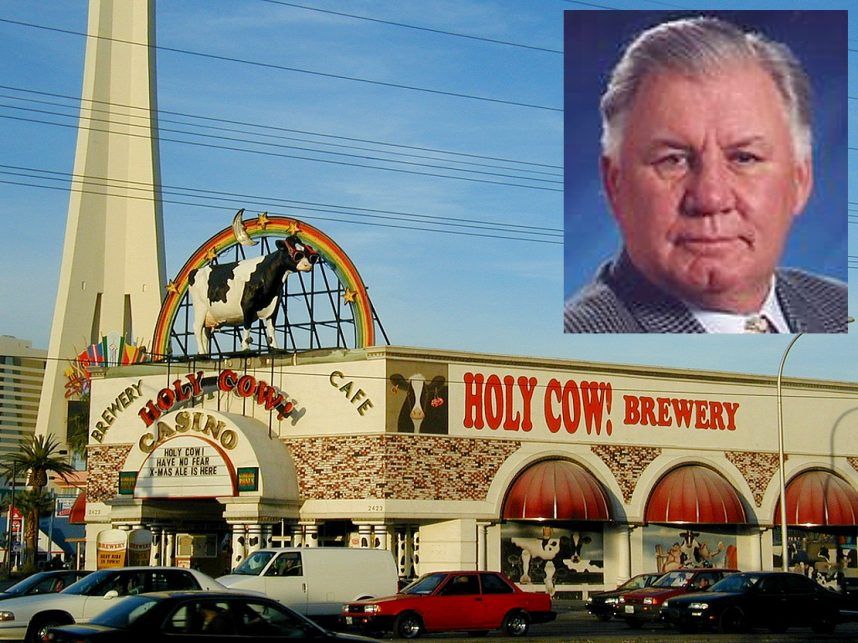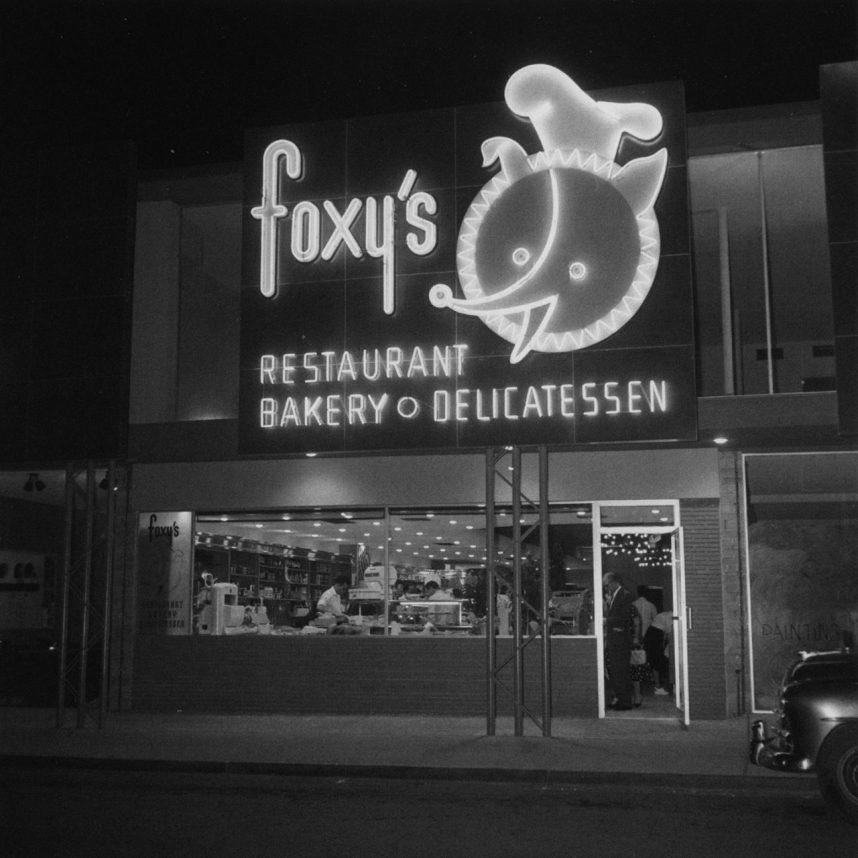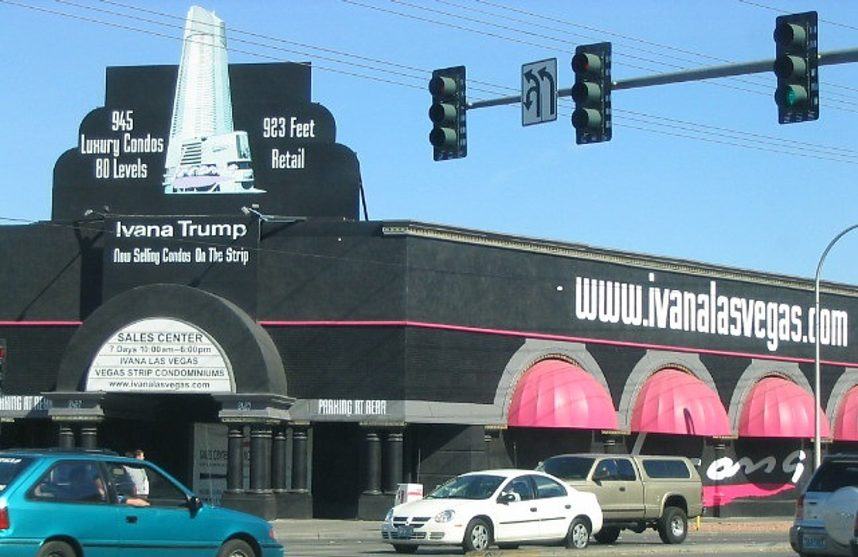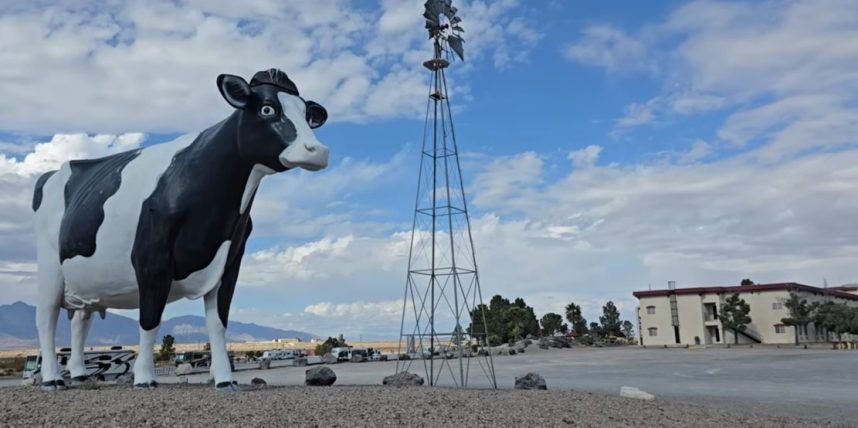The building that housed the Holy Cow Casino and Brewery, on the northeast corner of Sahara and the Strip, made Las Vegas history for a couple of big reasons.

In 1955, five years before the Strip was officially desegrated, the property opened as Foxy’s Deli and became the first restaurant on the Strip to openly serve Black people. Abe Fox, its Jewish owner, was an early donor to the local NAACP and believed passionately in equality.

Abe and his son, Jerry, would deliver food to Louis Armstrong, Nat King Cole and other Black entertainers who stayed in secret cottages in back of the Sands, where they performed but weren’t allowed to eat, gamble or swim.
In 1975, Fox sold his deli to Moe Dalitz, the famed former operator of the Desert Inn and Stardust who also took over the Flamingo after Bugsy Siegel’s 1947 murder. (Apparently, Fox didn’t have anything against the mob.)
Dalitz converted it Foxy’s Firehouse, which survived until 1988, a year shy of Dalitz.
Sacred Cow
In 1989, former NFL linebacker Tom “Big Dog” Wiesner sold his stake in the Marina Hotel to casino magnate Kirk Kerkorian, who incorporated the Marina into the current MGM Grand. Wiesner used the profits to reopen Foxy’s Firehouse as a new casino in 1992.
Wiesner, who grew up in Wisconsin a fan of the nearby Chicago Cubs, named it Holy Cow. That was what legendary Cubs announcer Harry Carey would scream to emphasize big plays. (One of Wiesner’s childhood dreams was realized the day Carey signed a wall inside with his signature phrase.)
Wiesner had a 14-foot-tall fiberglass Holstein built and installed on the casino’s roof. She wore sunglasses and was encircled by a neon rainbow. He named her Alphie.
A year after opening, the Holy Cow made its own history by opening the first legal brewery in Nevada.
At the time, the Silver State followed a three-tiered system for liquor sales, an archaic law established at the end of Prohibition in 1933. The law required producers of beer to sell their products only to wholesalers, who would then sell to retailers. They couldn’t sell directly to consumers.
Wiesner, who had served as a Clark County Commissioner from 1970 to 1978, helped lobby for the 1993 state law that allowed him to add the brewpub.
Udder Disappointment
The Holy Cow was successful for nearly a decade, but was forced to close in March 2002. Sadly, it was a victim of the decline in tourism post 9/11. Only three months later, Wiesner died of leukemia.
A year after that, the brewery changed its name to Big Dog’s Draft House, in honor of Wiesner’s nickname, and moved to its current location in northwest Las Vegas. Austrian developer Victor Altomare purchased the former Holy Cow site for $1 million in 2004.
A year later, Altomare reopened the building (briefly) for use as a sales office for The Summit. The $700 million condo project he planned was to have been the tallest habitable residential building west of the Mississippi at 923 feet.
Altomare renamed it Ivana Las Vegas a year later, thinking that the involvement of Donald Trump’s ex-wife would stoke more investment.

It didn’t, and the former Holy Cow building sat idle for seven more years. Altomare sold the land for $47 million to Aspen Highlands, a company owned by Arizona real estate developer Steven Johnson, in September 2007.
Five years later, Aspen Highlands demolished the former Holy Cow to build the two-story Walgreens that stands there today.
Cow Comes Home
Fortunately, Alphie escaped the wrecking ball. The Holy Cow’s longtime roof mascot was sold for $2,200 to Jim Marsh, a Las Vegas casino and car dealership owner who put the cow out to pasture. Alphie now stands sentry just outside the parking lot of Marsh’s Longstreet Inn and Casino, 100 miles northwest of Las Vegas on the California state line in Amargosa Valley.

The post LOST VEGAS: The Historic Holy Cow Casino appeared first on Casino.org.




